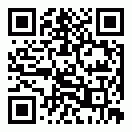At last!
My 100th post to South Oz E-learning since early 2005 and news of another resource for educators exploring the potential of Web2.0.
Just discovered this free, 92 page downloadable resource on Web2.0 for educators, "Coming of Age: an introduction to the new world wide web".
Terry and a range of well known practitioners in the field of education have generously collaborated to produce an invaluable resource for educators interested in practical advice on how Web2.0 tools might be used, albeit for "small-scale experimentation" in the classroom.
Terry's resource aims to "demystify "Web 2" and terms like blogging, wikis, social bookmarking ... " and more eg podcasting, RSS feeds, photo sharing, video blogging, IM. It includes advice, case studies, 'must read' blogs, interviews, issues and other links to increasingly popular open source resources such as Elgg and Moodle.
Scan the list of contents on Terry's blog and download and explore this fabulous free resource. Share it with others.




